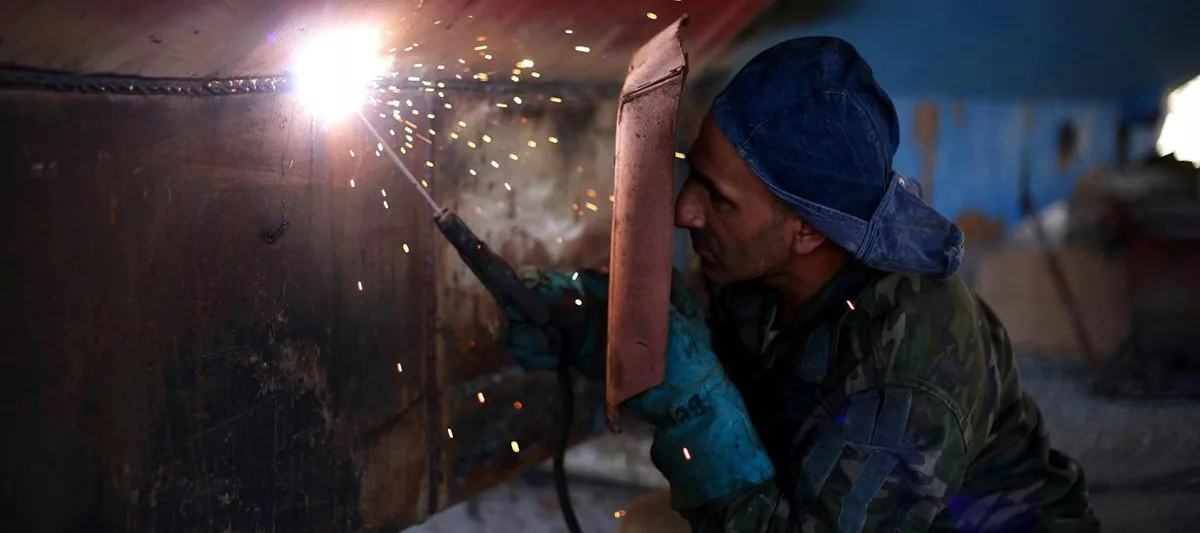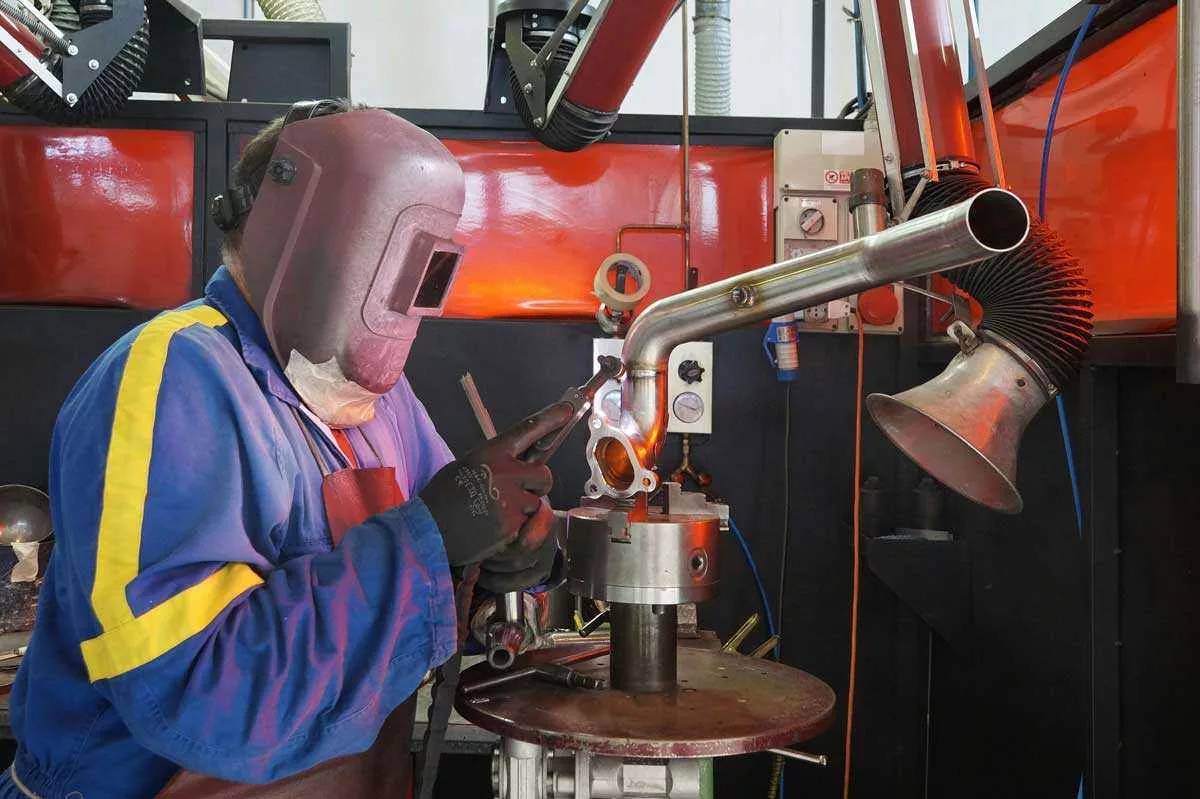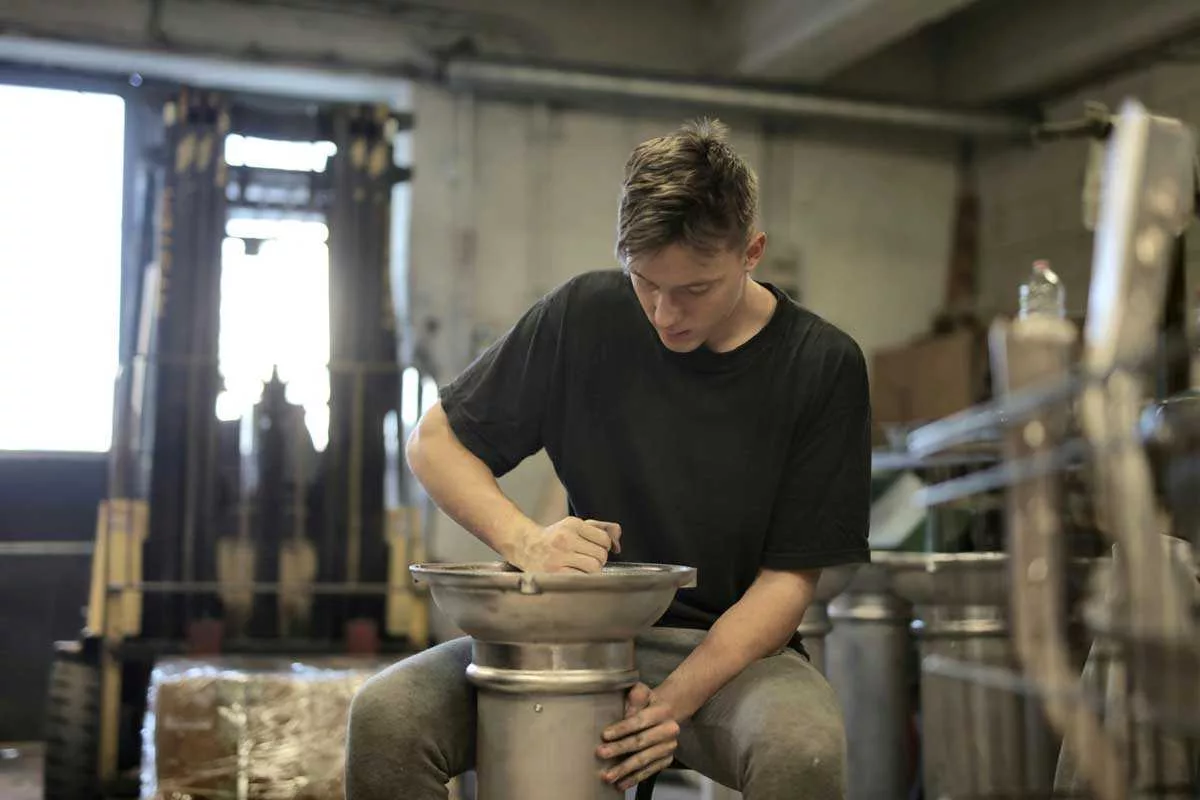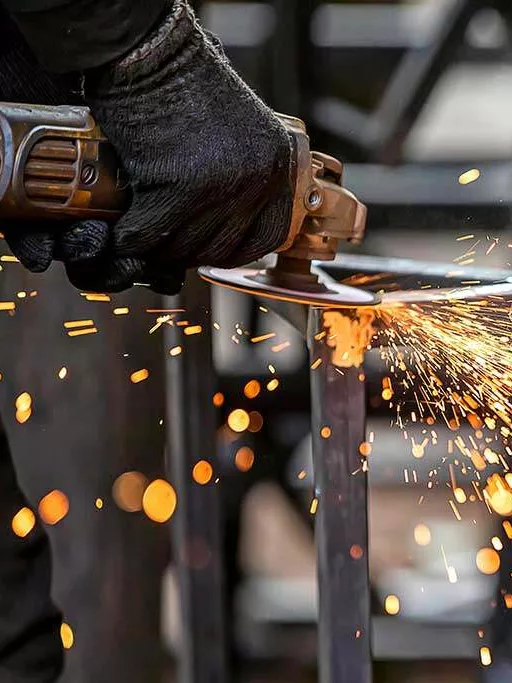Shape Your Career with a Metal Fabrication Apprenticeship in Adelaide

If you’re good with your hands, like working with machines, and want a future in industries like construction, mining, defence, heavy manufacturing, or shipbuilding, a metal fabrication apprenticeship could be your ideal pathway. Metal fabricators — also known as boilermakers or welders — play a critical role in building the infrastructure and machinery that keep the world moving.
ATEC is a Group Training Organisation (GTO) that offers practical, real-world training for those looking to enter the metal trades through our structured apprenticeship program. Whether you're a school leaver or making a career change, ATEC GTO is here to guide you through your training journey and prepare you for a solid, in-demand career.
What is a Metal Fabrication Apprenticeship?
A metal fabrication apprenticeship is a nationally recognised program that combines paid, on-the-job experience with formal off-site training. Over four years, you’ll work towards earning a Certificate III in Engineering – Fabrication Trade (MEM31922), qualifying you to work as a metal fabricator, welder, or boilermaker in a wide range of industries. As an apprentice, you’ll learn how to:
- Weld and cut various metals using tools like MIG, TIG, and arc welders
- Read and interpret technical drawings and blueprints
- Fabricate structural steel and other components
- Use machinery like guillotines, rollers, and presses
- Assemble and install fabricated parts in industrial, mining, or construction settings
- Work safely and comply with Australian equipment and workplace safety standards
Metal fabrication is used everywhere — from oil rigs and mining machinery to industrial plants, pipelines, and construction sites. This means your skills will be in demand across Adelaide and South Australia.
Where can a Metal Fabrication Apprenticeship take you?
This trade opens the door to a variety of high-paying and stable careers. After completing your apprenticeship and attaining your Certificate III in Engineering – Fabrication Trade (MEM31922), you may work as a:
- Boilermaker
- Welder
- Sheet Metal Worker
- Machinist
- Fabricator in construction, defence, mining, or infrastructure
- Site technician on oil rigs
- Workshop technician for manufacturing projects
- Maintenance fitter in an industrial plant
With additional experience or qualifications, you could also move into areas like supervision, project management, or even start your own fabrication business.

What skills and qualities do you need?
Metal fabrication is a hands-on trade that suits people who are physically capable, enjoy building things, and have strong technical instincts. The key skills and qualities that will help you succeed include:
- Welding and cutting skills – You’ll learn several welding techniques during your training and develop the finesse to apply them to real-world jobs.
- Taking precise measurements – Accuracy is vital when fabricating components that must fit together perfectly.
- Basic maths and design skills – From working out dimensions to interpreting technical drawings, these skills are used daily.
- Attention to detail – Small errors can have big consequences in this trade.
- Knowledge of safety procedures – Taught throughout your apprenticeship, you'll learn how to work safely in hazardous environments, including confined spaces and around hot metals.
- Understanding equipment safety standards – You'll gain a deep understanding of national safety regulations and how to apply them when using machinery and power tools.
- Good hand-eye coordination and manual dexterity – Fabrication work demands skill and precision.
- Ability to work independently and in a team – Many projects involve collaboration, but you’ll also be expected to take initiative.
A driver's licence and a construction induction card (White Card) are also beneficial when starting your apprenticeship.
Why choose a Group Training Organisation like ATEC?
Joining a Group Training Organisation (GTO) like ATEC gives you a major advantage as an apprentice. ATEC employs you directly and places you with trusted host employers across different fabrication settings — from workshops to industrial sites — giving you varied experience and stable employment.
ATEC has over 35 years of experience helping South Australians build rewarding careers through apprenticeships, so whether your goal is to work in mining, oil and gas, defence, construction, or manufacturing, ATEC can help you get there. When you choose ATEC, you’re choosing a pathway supported by a dedicated team that cares about your success.
Here's what you get when you choose ATEC for your Metal Fabrication Apprenticeship:
We Employ You
Forget the stress of job hunting. ATEC becomes your legal employer and handles your wages, super, insurance, and more. You focus on learning and working and we handle the admin.
Placement Opportunities
ATEC works with an extensive network of host employers across South Australia. We'll rotate your placements to expose you to different workplaces and broaden your experience in the metal trade.
Support and Mentoring
You’ll receive ongoing support from our industry professionals who understand the challenges of balancing work and study. From your first placement to your final assessment, we’re here to guide you.
Ongoing Employment
If work slows down with one host employer, ATEC will find you another placement. You’re never left in limbo — we make sure your apprenticeship continues smoothly until qualification.
Earn while you learn
A huge benefit of apprenticeships is getting paid to learn a trade. Your wage increases as you move through each year of the program, and once qualified, metal fabricators and welders are well-compensated, especially in industries like oil and gas, mining, and construction.
You’ll also gain nationally recognised skills that are in demand across the country, so you can work locally or take your trade anywhere.

A Growing Demand for Metal Fabricators in Adelaide, South Australia and Nationally
South Australia is home to a wide range of infrastructure, mining, manufacturing, and defence industry projects that rely on skilled tradespeople. The metal fabrication sector accounted for 11 % of manufacturing employment as of 2018 and is a critical part of our manufacturing landscape (Australian Manufacturing Workers' Union, 2019). South Australian metal fabricators make up 7.6% of the national workforce in this occupation, with the majority employed full-time (91% work full-time, averaging 47 hours per week).
The market size of the fabricated metal product manufacturing industry in Australia is projected to be $6.6 billion by 2025. This refers to businesses that primarily produce a wide range of metal products, excluding machinery and equipment, by shaping, assembling, or finishing metal materials. The other part of the Australian metal fabrication market reached approximately AUD 665.49 million in 2024, driven by demand in the construction, non-residential, automotive, aerospace, and manufacturing sectors, as well as government infrastructure investments.
As industries modernise and expand, metal fabricators continue to play a critical role in building, maintaining, and repairing vital equipment and structures. From welding pipelines in remote outback sites to fabricating steel for Adelaide city high-rises, the demand for skilled metalworkers is strong and growing. This makes a metal fabrication apprenticeship not just a job, but a long-term career opportunity.
Do you have a question about any of the information here?
 Make an Enquiry
Make an Enquiry


